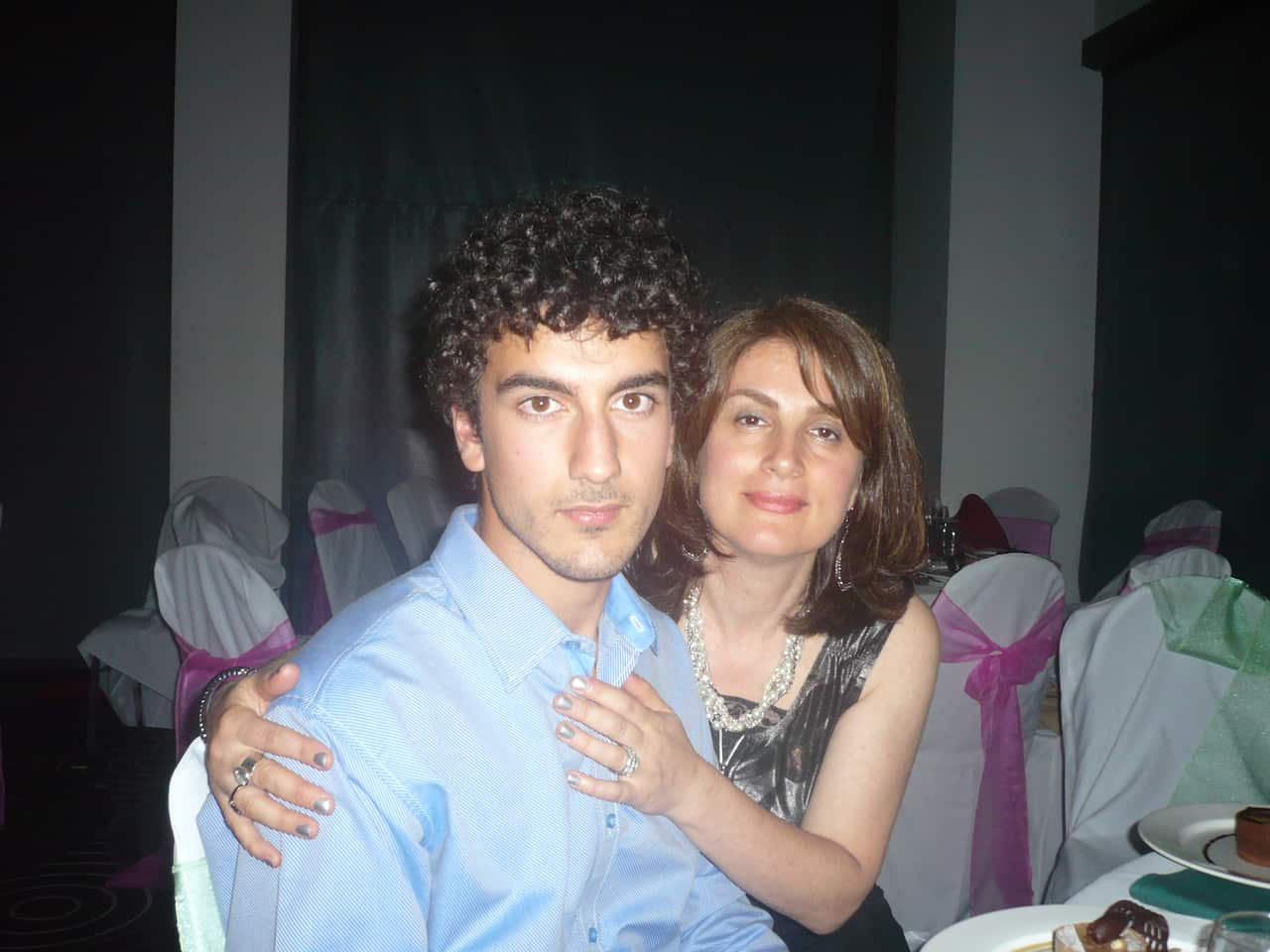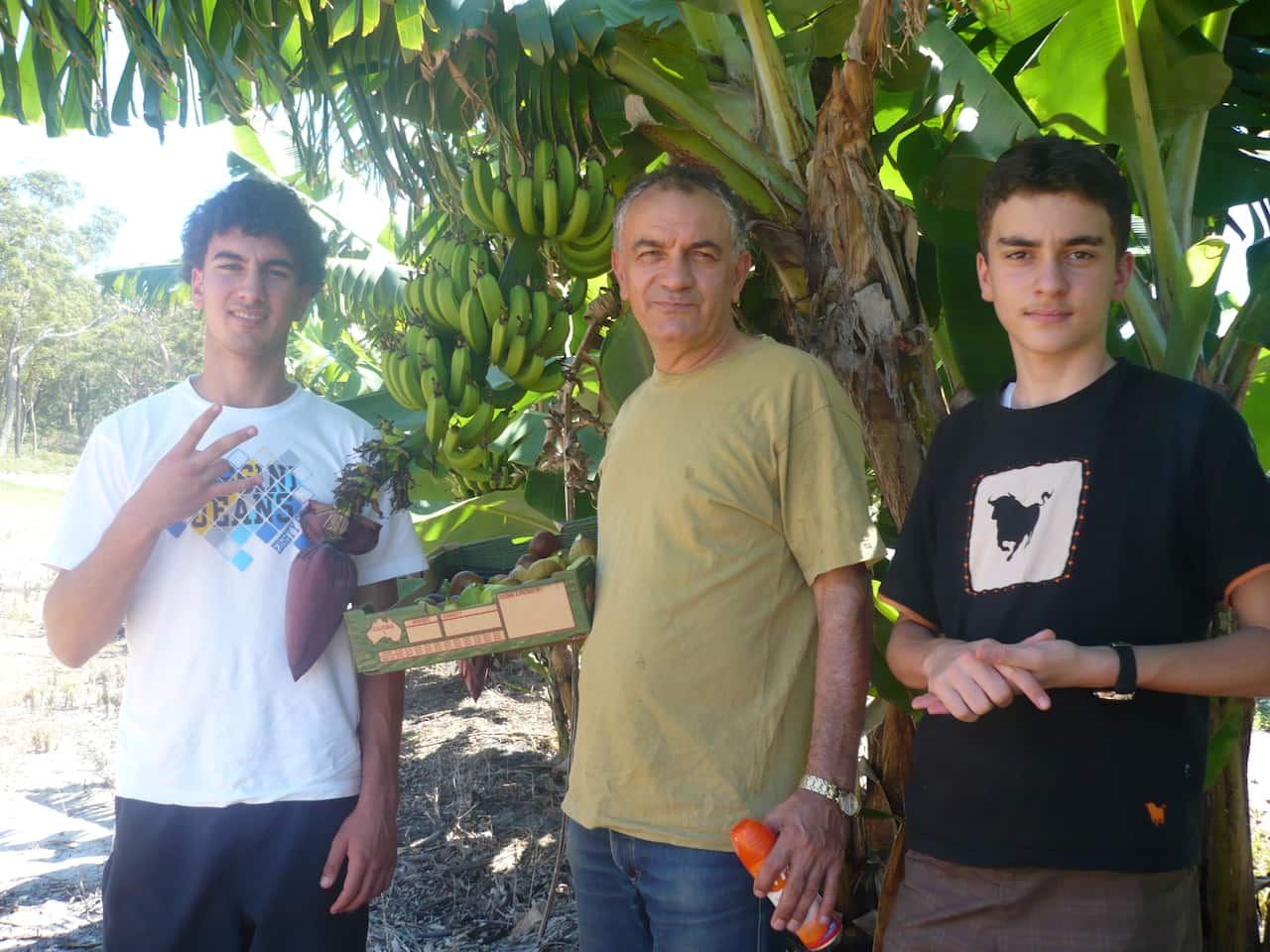Stream full episode of Missing Persons via SBS On Demand.
My brother, Sevak, hasn’t been seen since October 20, 2014. My family reported him missing after he failed to turn up to work at Bunnings. Four days later his friend led us to Sevak’s car at Kanangra Boyd National Park. There was no sign of him, which prompted an immediate search of the surrounding area. Eighteen days of searching by police, SES and RFS revealed no clues or signs of him.
Since then, we’ve done everything in our power to find answers. Earlier last year, Sevak’s case went to the Coroners Court. It was suggested to my family and seemed like an appropriate next step. We hoped it would open new avenues for investigation.
The inquest was a roller-coaster of emotions. It reopened old wounds and took a great toll on me emotionally. I felt absolutely wrecked after each day. I found myself running on empty; fighting to get through the day, but knowing tomorrow would be no different.

During proceedings, I witnessed my parents suffer greatly. Seeing their suffering has been one of the hardest parts of this entire experience. I’ll never forget the moment the Coroner read out her findings. I looked across to my parents who sat there helplessly, tears streaming down their faces. Based on all available evidence, the Coroner found that Sevak is dead. She stated that there was no cogent evidence that Sevak took his own life, had associations with organised crime or was a victim of foul play.
The findings meant little to me and my family. They didn’t provide fresh leads or new hope for answers. In fact, we still had many unanswered questions. We’d anticipated that the findings would suggest that Sevak was deceased, however this made no difference to our circumstances; we didn’t have any further insight into what had happened or where to go next. There was no solace - it was a cold and empty feeling realising we were back to square one; still stuck in this nightmare. The determination was made on available evidence, but it’s hard to paint a full picture when there are so many unknowns.
I wish people understood the complexity of dealing with a missing loved one - the uncertainty extends to all areas of life. Sevak’s disappearance left a gaping hole in our hearts. Like a central black spot in your vision, the reminder of your loss is always there in front of you, following your every turn; it’s not something you can just let go.
Nothing can prepare you for the overwhelming experience. The learning curve is huge, and you often find yourself neck-deep, trying to stay afloat- you’re forced to grow, or go under.
The lack of understanding about the experience means that families are left isolated. Ambiguous loss is an extremely stressful type of grief - every day is a fight. The experience reveals many truths, and I’ve come across the most beautiful people on this journey and found that support comes from unexpected places. But on the flip side some people who once supported you can turn on you. Understandably, people struggle to know how to react and what to say to loved ones. Judgement can be cast upon families, and some people are willing to spread baseless information, without approaching families first, or considering the impact of their actions. You can figure out a great deal about a person’s level of compassion and life experience based on their reaction and focus towards another person’s ambiguous loss.
Society is obsessed with sharing an unsustainable facade of happiness and perfection. We struggle to acknowledge sad moments, even though they are an inevitable part of life. Consequently, although most people can relate to this issue, they choose not to engage- it’s the easier option.
The avoidance of acknowledging pain and suffering also means that people struggle to reach out to each other. While I’m open to speaking about the issue to anyone, it seems that most others would rather not reach out. I encourage people to reach out to one another, regardless of the difficulty in doing so. It mightn’t be easy, but it’s the right thing to do. And if you don’t know what to say to someone like me a simple acknowledgement, for instance, “I’m sorry” will do.

The issue of missing persons needs to be reframed as a community issue. In my opinion police have limited access to resources for non-suspicious cases, and a vast majority of cases relate to mental health. Furthermore, the impact of each missing persons case directly affects at least 12 people. At a time when these people are immobilised due to the emotional and psychological toll of their loss, community cohesion is imperative. The public, government, media and corporates have the ability to collaborate to ease some of the burden on grieving families through campaigns for awareness, and exposure of cases. If these domains work together, sharing their resources, it would allow for an evolution of how we deal with this issue.
I’m sure all families will agree, that the pain and anguish is a fair trade-off for the possibility of having their loved one back. I prioritise Sevak’s case, and I prioritise the issue of missing persons. Not only because Sevak would do the same; not only because he’s my brother or that he’s family, but because he is genuinely a good person. Behind his cautious smile, is a kind and gentle young man, whose thirst for adventure and creativity shone through. Sevak is a man of depth and substance; he focused on the important things in life, and did everything with love.
I hope every day for Sevak’s return. Although I’m not expecting a miracle, I certainly do hope for one. And yes, I’m aware of the general consensus towards the long-term missing: “move on with your life” and “let it go” are common themes. But this is the very least I can do for Sevak and my family, and on some days, that glimmer of hope is all I have. The pain and suffering is not going to stop me from acknowledging my brother, the same way it shouldn’t stop society from acknowledging the families and friends left behind.
Missing Persons Advocacy Network (MPAN)
National Missing Persons Coordination Centre
Insight is Australia's leading forum for debate and powerful first-person stories offering a unique perspective on the way we live. Read more about Insight
Have a story or comment? Contact Us


